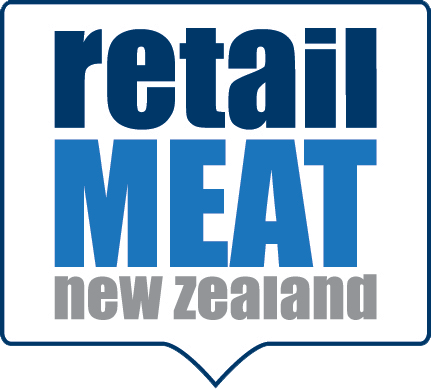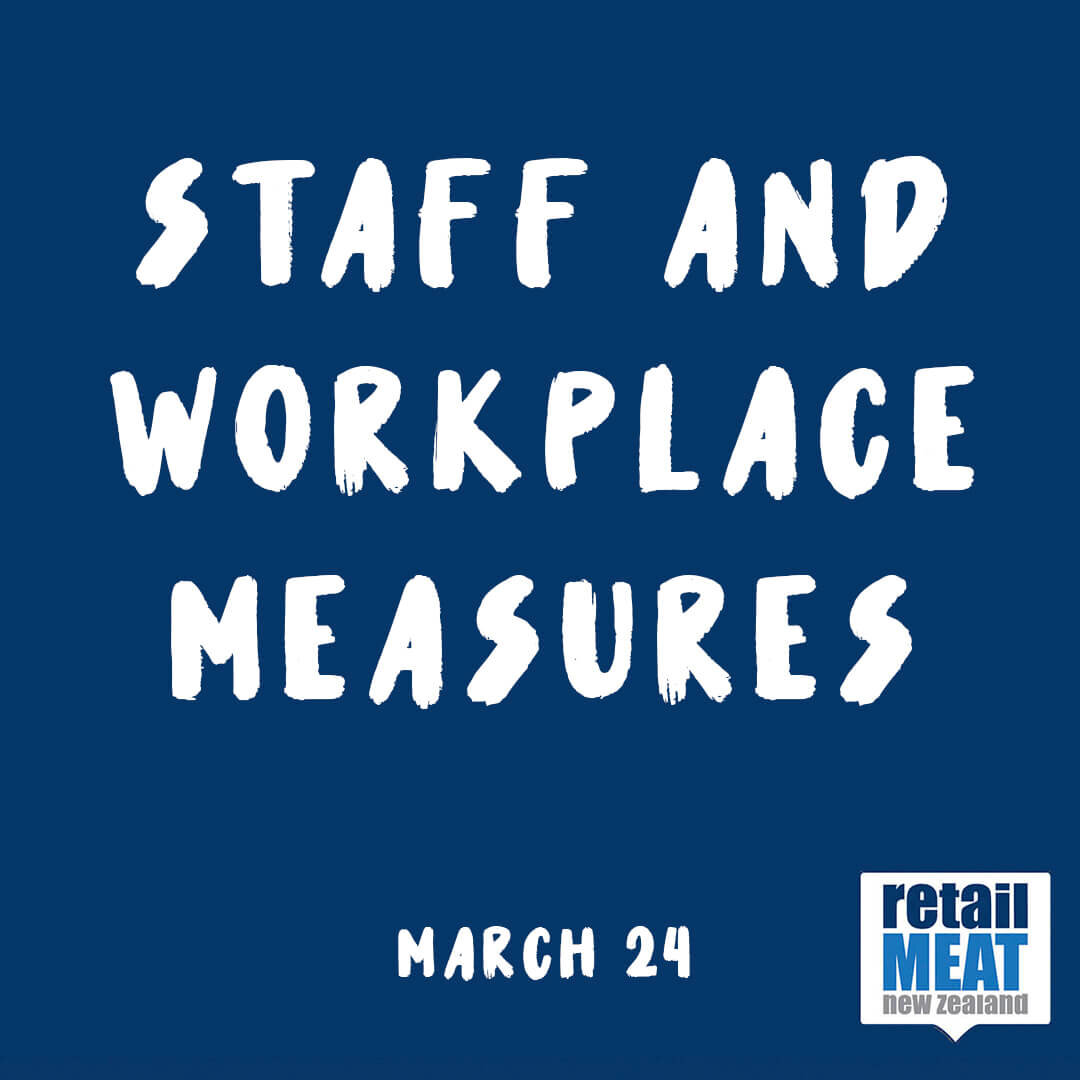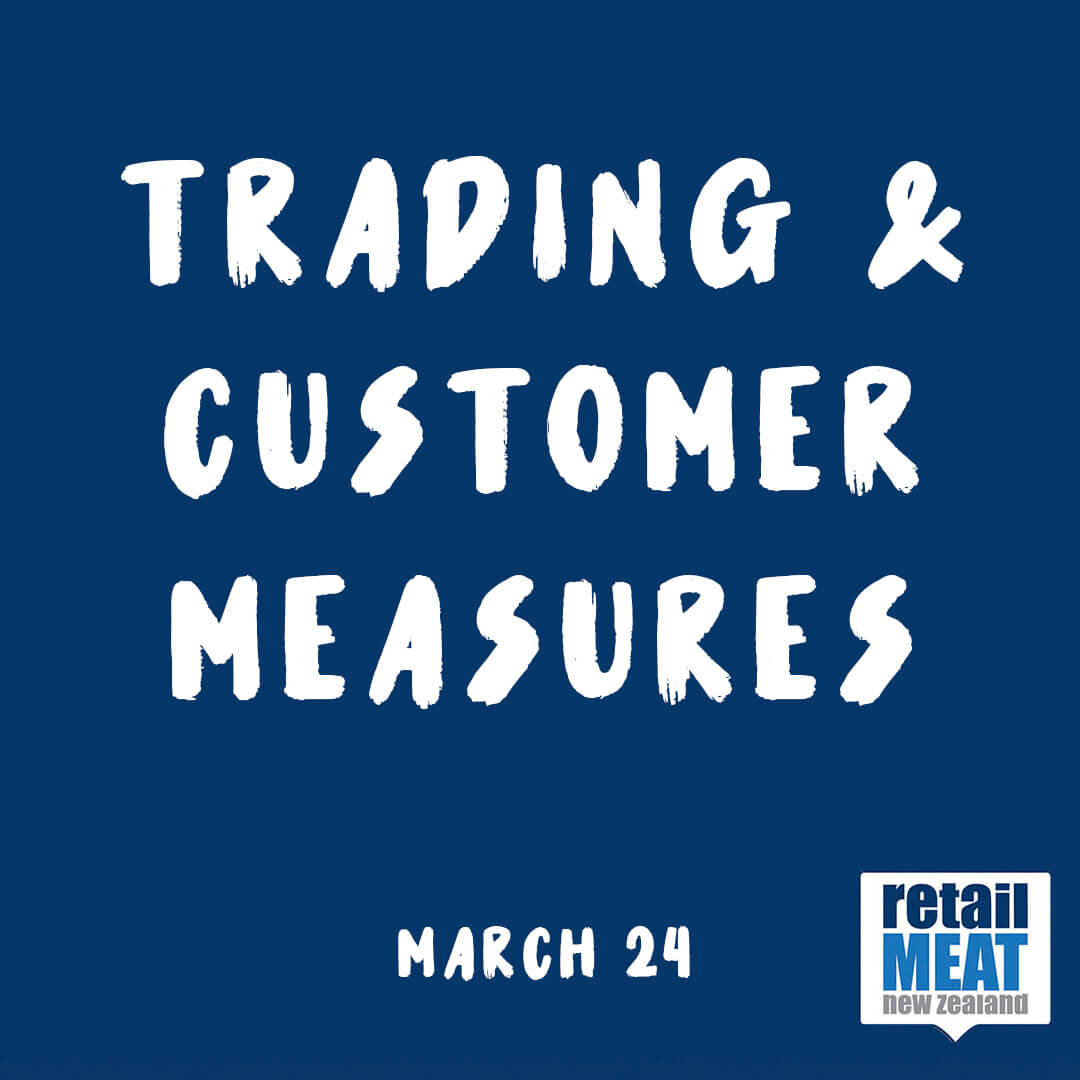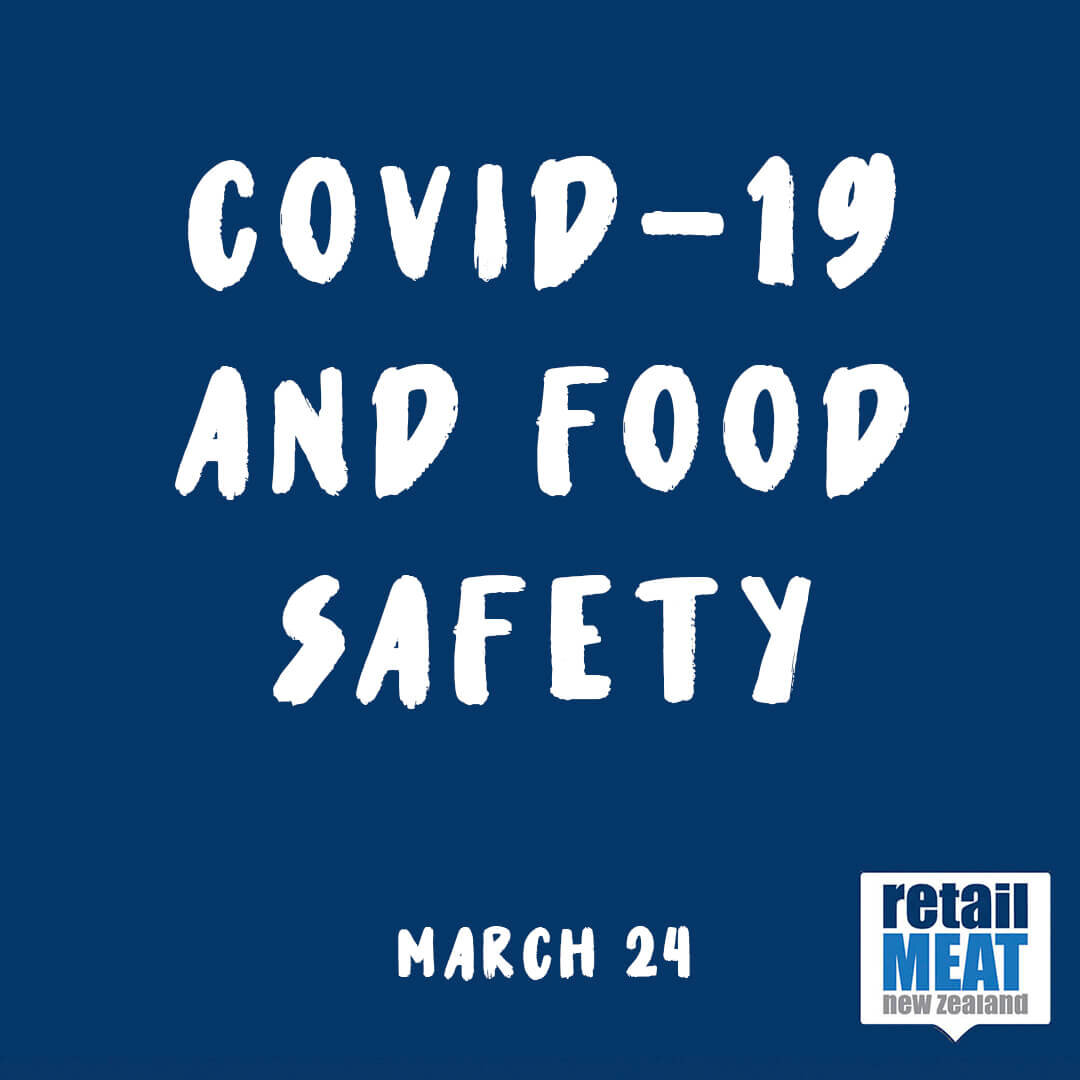Essential Services recommended measures
Following on from our communications yesterday where we advised you what is deemed 'essential services' (based off the official COVID-19 government website), we wanted to provide some recommendations and guidance on how best to operate during this time to protect yourselves and your staff, and minimise the risk and spread of Coronavirus.
This is a privilege the government has given us, and we must ensure that physical distancing and proper hygiene processes are adhered to. If you are not taking correct measures, the government will take this privilege away. We need to take this really seriously.
STAFF MEASURES
We appreciate that many of you and your staff will be exhausted given the recent hectic trading. The mental and physical health of yourselves, and your staff is very important, and in fact critical looking forward. Our suggestions for your staff:
We strongly encourage you to implement physical distancing measures with your staff. This includes working with sufficient distance between individual staff members, split shifts to reduce the number of staff working at one time, and not allowing staff to take tea and lunch breaks together.
You should encourage staff to travel to work solo, and if they must rideshare, create as much distance as possible between each other in the vehicle.
TRADING & CUSTOMER MEASURES
Each of you will of course be making your own decisions on how you trade in the coming days and weeks. Our suggestions are:
Look at opening just four or five days per week. Whatever days you decide, it would be advisable to stick with those days consistently e.g. Tuesday to Friday or Wednesday to Sunday etc.
We encourage you to allow only a certain number of customers in the shop at one time, and you may want to put tape on the ground outside where they would line up to ensure a safe distance is kept between customers.
We encourage you to re-allocate a staff member to manage the flow and number of customers in the store, and to identify if anyone looks particularly unwell.
Keep up your social media and website presence - more than ever, your customers will be heading online to find out more from you.
Your customers will completely understand and you may find your business runs more efficiently than ever before. This advice is principally for our smaller businesses, as the chains will be making their own decisions. However we want to be clear, all these are just suggested courses of action. Ultimately you know your business and your customers best and will make your own decisions.
COVID-19 & FOOD SAFETY
The NZ Food Safety Science and Research Centre (NZFSSRC), along with the Institute of Environmental Science and Research (ESR) have recently undertaken a review of whether COVID-19 can be transmitted via food. The science is rapidly moving, with more information reported daily, and at this stage, there is no evidence of food transmission of COVID-19. The following is for your internal information, providing an overview of considerations around food handing and business management. Further updates will be provided as we learn more.
Can the virus be transmitted through food?
Experience with recent acute respiratory diseases such as Severe Acute Respiratory Syndrome (SARS) and Middle East Respiratory Syndrome (MERS) suggests that people are unlikely to be infected with the virus through food. There isn’t evidence to date of this happening with the 2019 Coronavirus (COVID-19).
Coronaviruses cannot grow in food – they need a host (animal or human) to grow in. Cooking for at least 30 minutes at 60°C kills SARS, which is a similar coronavirus.
Coronaviruses are most commonly passed between animals and people and from person-to-person contact.
The virus is commonly transmitted through direct mucous membrane contact by infectious droplets, e.g. breathing in airborne virus from the sneeze of someone who is infected, or through hand to mouth/nose contact after fingers have touched a contaminated surface.
What can food handlers do?
It is possible that infected food handlers could introduce the virus to the food they are in contact with by coughing and sneezing, or through hand contact. However, this is unlikely to occur if food handlers in food businesses and in the home follow standard, good personal hygiene practices that reduce the risk of transmission of most foodborne illnesses. These practices include:
proper hand hygiene
safe food practices
cough/cold hygiene practices
avoiding close contact, when possible, with anyone showing symptoms of respiratory illness such as coughing and sneezing.
Food handlers must wash hands (even if they have no disease symptoms):
before starting work
before handling cooked or ready-to-eat food
after handling or preparing raw food
after handling waste
after cleaning duties
after using the toilet
after blowing their nose, sneezing or coughing
after eating, drinking, or smoking
after handling money.
It is important that food handlers inform their employer, avoid preparing food for other people, and seek medical advice if they think they have symptoms of respiratory illness. Employers may ask staff to stay home until after medical advice is given. Similarly, if staff have been overseas to affected regions or in contact with persons who have, they should inform their employer and seek appropriate medical advice.
What can food business owners/managers do?
It is unlikely that COVID-19 can be transmitted through food, and there isn’t evidence to date of this happening. Usual good hygienic manufacturing practices and thorough cooking for cooked products will minimise the risk of transmission for any foodborne illness.
Manufacturers and employers still have an important role to play in preventing foodborne illness. They should:
ensure staff are aware of the COVID-19 issue
stay informed of staff who have been overseas to affected regions or in contact with persons who have, and seek appropriate medical advice
ensure that food handlers are trained appropriately in food hygiene practices appropriate to their premises
ensure effective supervision of food handlers to reinforce hygienic practices
ensure that appropriate facilities are provided for hand washing or sanitation (e.g. alcohol gels/wipes) to enable food handlers to practice good hygiene
ensure that food handlers and external contractors are aware that they must report any signs/symptoms of respiratory illness before or during work
keep vigilant and ensure that food handlers and other staff are not ill and are fit to work
ensure that staff with symptoms stay home until medical advice is obtained
fully support staff through access to medical advice and during convalescence.
General advice for managing infectious disease risk in any workplace would also apply, to avoid infecting co-workers or contaminating product. This includes informing the employer and seeking medical advice if the worker has any symptoms of respiratory illness, or has travelled to affected regions. Creating an atmosphere where staff feel supported in taking these actions would be an important function for employers.
Examples of advice for workplace safety for infectious disease:
Ministry of Health advice, click here
World Health Organisation advice, click here
CDC (Centres for Disease Control and Prevention) advice, click here
We will continue to keep you updated with changes or developments that may impact you. Please don't hesitate to get in touch with us at any time, we are here to support you.
Pippa Hawkins, General Manager
pippa@rmnz.co.nz
To visit the official government COVID-19 website, please click here



